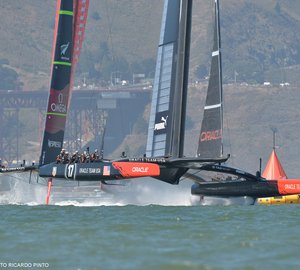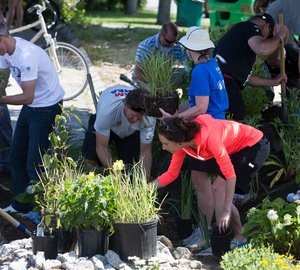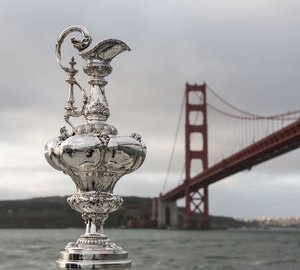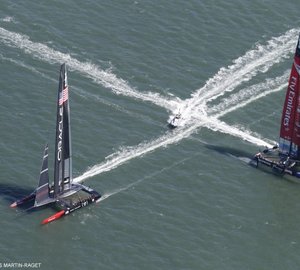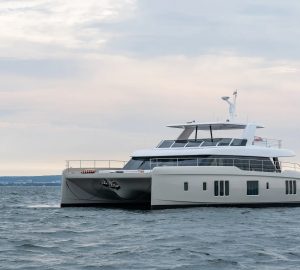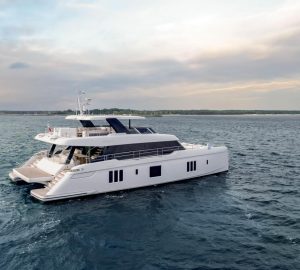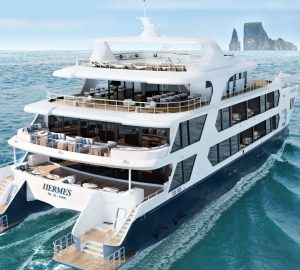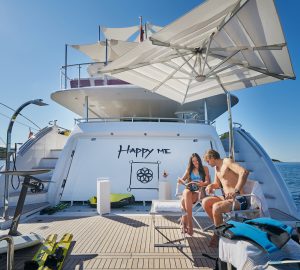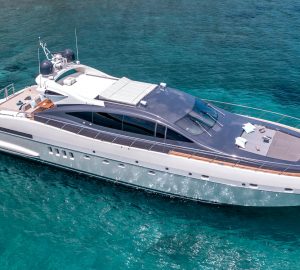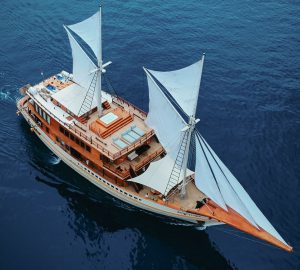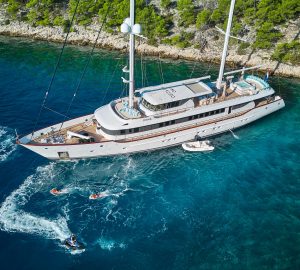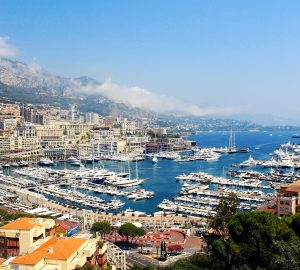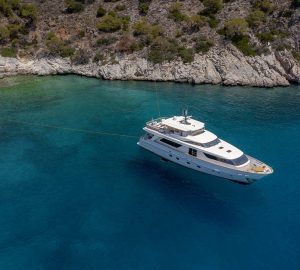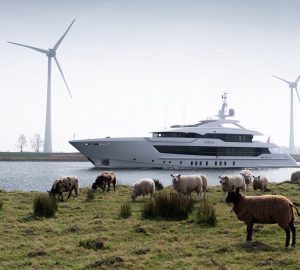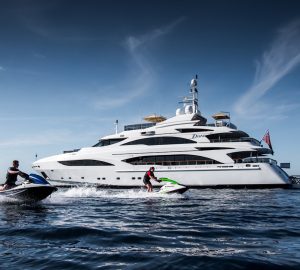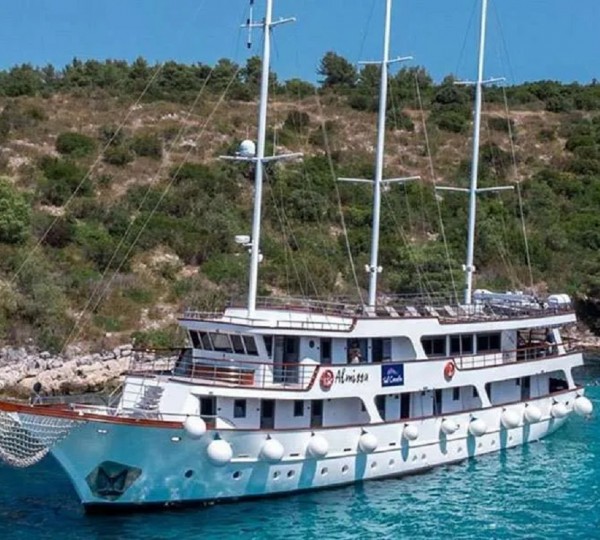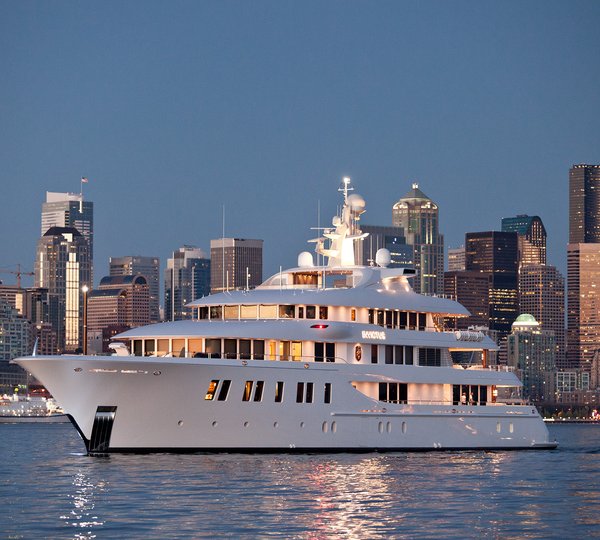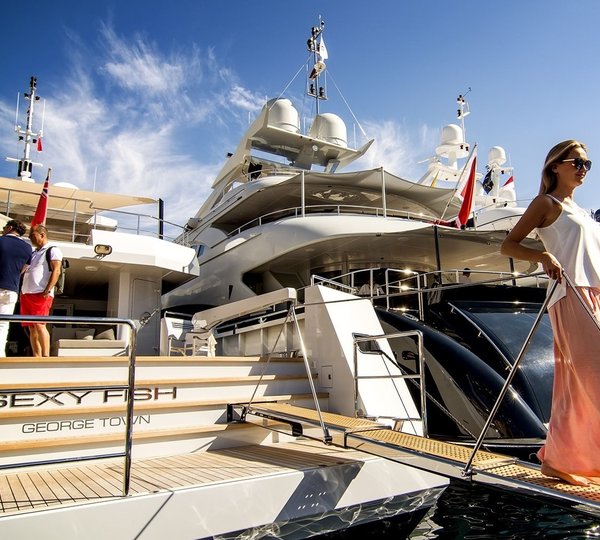To have the 34th America’s Cup “more than a sport,” the America’s Cup Event Authority (ACEA) has come with an enthusiastic goal together with the AC Healthy Ocean Project to create the world’s largest communication outreach program concentrating on improving ocean health. To achieve this aim, ACEA has cooperated with some of the main voices in the ocean conservation field, as Dr. Sylvia Earle and her organization Mission Blue, OceanElders, Sailors for the Sea, One World One Ocean, IUCN and The International Union for the Conservation of Nature.
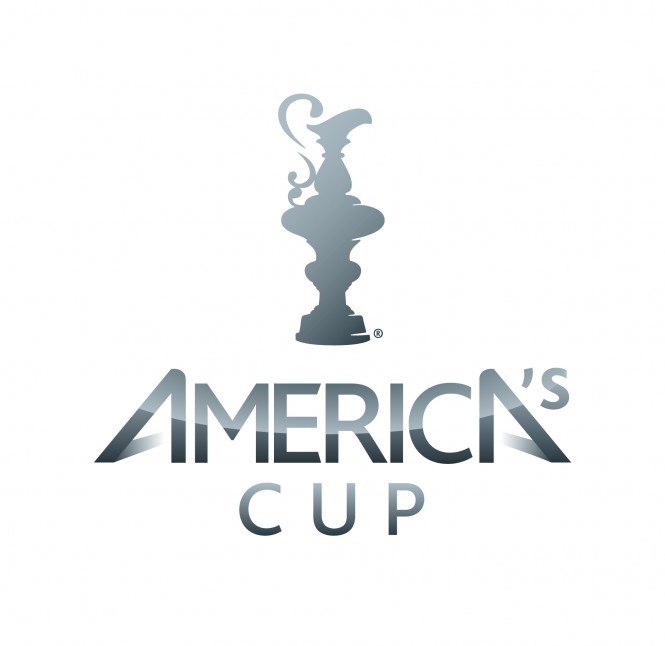
Dr. Sylvia Earle, Oceanographer, Explorer-in-Residence at National Geographic and Global Ambassador to the AC Healthy Ocean Project: “As an ocean scientist and explorer with thousands of hours on, around and especially under the sea, I have personally witnessed a time of unprecedented discovery – and unprecedented loss. Half a century ago, it seemed the ocean was too vast, too resilient to be affected by our actions. Now we know: coral reefs, kelp forests, coastal marshes, numerous kinds of fish and other ocean wildlife have declined sharply owing to pressures we have applied. Dead zones have appeared. Oxygen-producing plankton is declining. The ocean is in trouble – and that means we are in trouble, too.”
The ocean forms one of the key operating systems of our planet. It creates more than half our oxygen, drives weather systems and modulates the atmosphere, as well as providing us with vital resources. Damage to the ocean is not as immediately apparent as terrestrial destruction, but it is just as serious.
Gigi Brisson, Founder, OceanElders: “The situation is now so severe that we are altering the chemistry of the ocean, with significant impacts on marine life and the functioning of marine ecosystems. Ecosystems are collapsing as species are pushed to extinction and natural habitats are destroyed. All of the stressors we have put on the ocean — from over-fishing to pollution — have contributed to its ill health.” Scientists believe that there is still time to prevent irreversible, catastrophic changes to our marine ecosystems, but this requires drastic action within the next decade.
Carl Gustaf Lundin, IUCN Global Marine and Polar Programme: “IUCN is very proud to have this opportunity to work with the America’s Cup to find better ways to locally conserve resources that will make a difference, as well as innovative ways to mobilize new resources for ocean conservation. The world has been discovering the oceans through the activities of sailors throughout the centuries, so it is really exciting that America’s Cup is partnering with IUCN and a number of other partners to help us better understand the oceans and create a legacy for future generations.” Greg MacGillivray, Academy Award-nominated IMAX filmmaker and chairman of One World One Ocean: “One World One Ocean shares and supports the mission of the AC Healthy Ocean Project to raise worldwide awareness about the critical issues facing our oceans and, even more importantly, to motivate action for establishing greater ocean protections. We look forward to lending our skills as filmmakers, harnessing the power of motion picture entertainment, TV and new media, to tell the story of the ocean in a way that emotionally connects people to the ocean and inspires them to act positively on its behalf.”
From public service announcements woven into America’s Cup broadcasts to visible identification on all America’s Cup boats and events committed to Clean Regatta standards, ocean conservation and environmental stewardship will be pervasive throughout the America’s Cup as it travels to global destinations over the next three years, beginning with the AC World Series and becoming more pervasive on the path to 2013’s Louis Vuitton Cup and America’s Cup Finals in San Francisco.
Dan Pingaro, CEO, Sailors for the Sea. “The increasing pressure of global use continues to strain marine life and vital coastal habitats. Once considered inexhaustible and resilient, the ocean is actually finite and fragile,” said . “We believe by harnessing boaters’ profound passion for and understanding of the world’s seas, we can galvanize the sailing and boating community around ocean health issues. ACEA’s commitment to our Clean Regattas program and pledge to run the America’s Cup events with a strong commitment to ocean and coastal water conservation is a beacon to boaters and sailing organizations on the need to take action and effect change to protect this vital natural resource.”
Event organizers selected San Francisco as the launch city for the AC Healthy Ocean Project not only because the 34th America’s Cup will be held there in 2013, but also because the City by the Bay is already a model of sustainable practice.
“The America’s Cup Healthy Ocean Project provides an unparalleled opportunity to show the world that San Francisco Bay is more than just a beautiful view; it is a delicate ecosystem that directly relates to the health of the ocean,” said John Frawley, President and CEO of Aquarium of the Bay.
A consortium of Bay Area ocean and Bay health-related organizations are partnering with the AC Healthy Ocean Project to focus on opportunities within San Francisco Bay that will continue to showcase the Bay Area’s leadership in these issues. San Francisco Bay-based partners include the Aquarium of the Bay, the Marine Mammal Center, Mission Blue, National Marine Sanctuaries, NOAA, Sailors for the Sea and Save the Bay.
“Working with local and international partners, the America’s Cup organization will inform people about what they can do individually and together to protect and restore health to the ocean. In so doing, there will be benefits for human health, prosperity, security – and our very lives,” said Dr. Earle. “There is time, but no time to waste. The race to restore health to the ocean is one we can’t afford to lose.”
The AC Healthy Ocean Project builds upon the work that ACEA has already begun in the areas of ocean conservation and sustainability, including coastal conservation activities and forums on issues facing our oceans at the first two AC World Series events this summer, as well as a commitment to organizing events that can be certified as Clean Regattas.
“The current reality is the majority of people don’t recognize the value that the ocean provides, nor do they recognize that the ocean is in trouble and needs their help,” said Neill Duffy, Director of Sustainability, ACEA. “Together with our global and local partners, we hope to change that fact and instead activate a global call to action – reaching those who have affinity and respect for our world’s oceans and motivating them to act in unparalleled numbers.”

